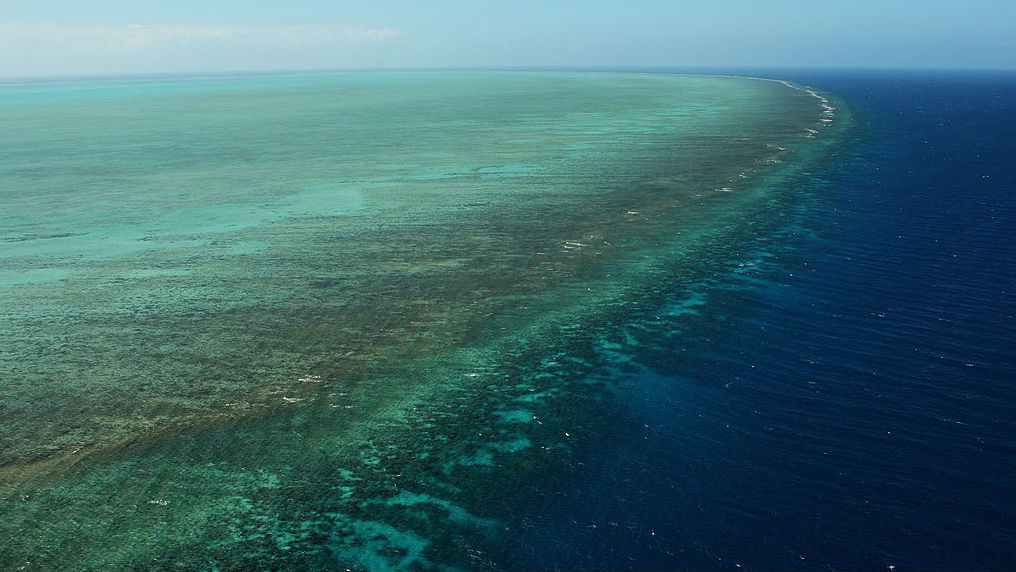Fact Check: The truth behind the damage to the Great Barrier Reef
Does climate change mean the famous ecosystem is in danger of disappearing forever? The Week finds the truth

A free daily email with the biggest news stories of the day – and the best features from TheWeek.com
You are now subscribed
Your newsletter sign-up was successful
Scientists and environmentalists are increasingly concerned about the health of the Great Barrier Reef off the coast of Australia, but there are arguments that reports of its demise have been exaggerated. What are the facts?
Who says what?
According to Greenpeace, the reef, a UN World Heritage site, is deteriorating at an alarming rate and could disappear forever.
The Week
Escape your echo chamber. Get the facts behind the news, plus analysis from multiple perspectives.

Sign up for The Week's Free Newsletters
From our morning news briefing to a weekly Good News Newsletter, get the best of The Week delivered directly to your inbox.
From our morning news briefing to a weekly Good News Newsletter, get the best of The Week delivered directly to your inbox.
"Climate change is fuelling warmer waters, cooking the reef alive," says campaigner Alix Foster Vander Elst. "Once a coral is dead, it's gone forever."
However, the Australian government, among others, dispute the severity of the damage.
"We have to put the facts on the table," environment minister Josh Frydenberg said in December. "The reef is not dead, it's not dying. It's resilient, it's healthy."
Breitbart columnist James Delingpole, a climate change sceptic, has gone even further and says reports of widespread coral death are "classic fake news" being spouted by liberal media outlets.
A free daily email with the biggest news stories of the day – and the best features from TheWeek.com
The reef is "not going to disappear," he wrote in the right-wing publication yesterday. "That's just a #fakefakenews lie designed to promote the climate alarmist agenda."
What are the facts?
Coral is extremely sensitive to shifts in ocean temperature, scientists say, meaning global warming poses a huge risk to the Great Barrier Reef.
The National Oceanic and Atmospheric Administration reports that warmer sea temperatures brought on by climate change are now the primary cause of coral bleaching, which leaves it vulnerable to disease and death.
"If the stress-caused bleaching is not severe, coral have been known to recover," the agency reports.
"If the algae loss is prolonged and the stress continues, coral eventually dies."
A study published in the scientific journal Nature last week revealed that a major temperature spike in 2016 led to the worst-ever bleaching event, devastating swathes of coral. The chances of the northern reef returning to its previous state "are slim given the scale of damage", said researchers from Australia's James Cook University.
Professor Terry Hughes, one of the study's authors, said: "We didn't expect to see this level of destruction to the Great Barrier Reef for another 30 years."
The impact from the latest bleaching event is still unfolding, but experts at the Australian Institute of Marine Science estimate that overall coral mortality is at 22 per cent for the entire Great Barrier Reef.
Who's right?
The scientific facts are indisputable: the Great Barrier Reef is under severe threat from climate change and could disappear if urgent action isn't taken to combat rising sea temperatures.
-
 The environmental cost of GLP-1s
The environmental cost of GLP-1sThe explainer Producing the drugs is a dirty process
-
 Greenland’s capital becomes ground zero for the country’s diplomatic straits
Greenland’s capital becomes ground zero for the country’s diplomatic straitsIN THE SPOTLIGHT A flurry of new consular activity in Nuuk shows how important Greenland has become to Europeans’ anxiety about American imperialism
-
 ‘This is something that happens all too often’
‘This is something that happens all too often’Instant Opinion Opinion, comment and editorials of the day
-
 Epstein files topple law CEO, roil UK government
Epstein files topple law CEO, roil UK governmentSpeed Read Peter Mandelson, Britain’s former ambassador to the US, is caught up in the scandal
-
 Iran and US prepare to meet after skirmishes
Iran and US prepare to meet after skirmishesSpeed Read The incident comes amid heightened tensions in the Middle East
-
 Israel retrieves final hostage’s body from Gaza
Israel retrieves final hostage’s body from GazaSpeed Read The 24-year-old police officer was killed during the initial Hamas attack
-
 China’s Xi targets top general in growing purge
China’s Xi targets top general in growing purgeSpeed Read Zhang Youxia is being investigated over ‘grave violations’ of the law
-
 Panama and Canada are negotiating over a crucial copper mine
Panama and Canada are negotiating over a crucial copper mineIn the Spotlight Panama is set to make a final decision on the mine this summer
-
 Why Greenland’s natural resources are nearly impossible to mine
Why Greenland’s natural resources are nearly impossible to mineThe Explainer The country’s natural landscape makes the task extremely difficult
-
 Iran cuts internet as protests escalate
Iran cuts internet as protests escalateSpeed Reada Government buildings across the country have been set on fire
-
 US nabs ‘shadow’ tanker claimed by Russia
US nabs ‘shadow’ tanker claimed by RussiaSpeed Read The ship was one of two vessels seized by the US military